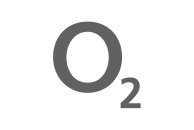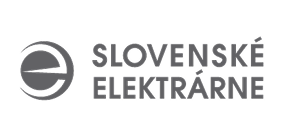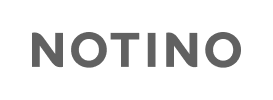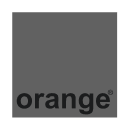
Each week, we bring you 5 stories that resonated the most in our internal Slack channel #AI-news. We write the newsletter using various AI tools because we're an AI company and our marketing wants to move with the times too. 😎
Today you're reading the 72nd issue in a row.
#1
Apple 🍏: Reportedly considering acquisition of AI search engine Perplexity 🧠.
Apple 🍏 is internally exploring the idea of acquiring Perplexity, an AI-powered search engine backed by Nvidia 🖥️. The talks are still in early stages 🕰️, and Apple has not yet formally approached the startup 🤐.
Perplexity is part of a new wave of AI tools 🤖 that provide direct answers with source citations 📚. Apple is said to be planning to add more AI features to Safari 🌐, which could signal a move away from its long-standing reliance on Google Search 🔎.
Meta 💬 previously showed interest in Perplexity as well, highlighting how competitive the AI search space has become. If Apple were to follow through with the acquisition ✅, it would rank among the company’s largest deals ever 💰.
#2
Meta and AI talent 🧠: Offering up to $100 million to lure OpenAI experts 💰!
Meta 💼 is reportedly offering signing bonuses of up to $100 million to attract top engineers from OpenAI 🤖—a fact confirmed by OpenAI CEO Sam Altman. The goal is to build an elite AI team 🧠, with Mark Zuckerberg personally involved in the recruitment effort. Meta has already hired researchers from Google DeepMind 🔬 and other leading firms 🏢.
OpenAI and Google 🏛️ are fighting to retain their top talent—offering multi-million dollar bonuses, equity packages 📈, and strict non-compete clauses 🚫.
While the battle for senior AI talent is fierce ⚔️, the situation for junior developers is quite the opposite. The share of recent graduates 🎓 among new hires at major tech companies has dropped to just 7%—a decline of over 50% compared to pre-pandemic levels 📆. The gap between demand for elite talent and opportunities for newcomers is only widening 🧩.
#3
Trump and AI 🤖: New legislation would block all 50 states from enacting AI laws for a decade 🇺🇸
Eric Horvitz 🧠, Chief Scientific Officer at Microsoft, argues that smart regulation 📜 can actually accelerate AI development by improving safety and reliability ✅. This view contrasts with Donald Trump’s 🇺🇸 proposed federal ban on state-level AI regulations for the next 10 years—a move he claims is necessary to keep the U.S. from falling behind China 🇨🇳.
Ironically, Microsoft supports Trump’s proposal 🤝—not out of ideology, but due to concerns about regulatory chaos if all 50 states implement their own, conflicting AI laws. At the same time, Horvitz urges AI researchers 👨🔬 to work with governments on creating thoughtful rules that promote innovation instead of stifling it 🛑.
He also warned about the dangers of AI misuse—for spreading disinformation 🧨 or even enabling biological threats. Experts like Stuart Russell 🧓 echo these concerns, noting that releasing powerful AI without oversight could pose risks to all of humanity 🌍.
#4
Managers vs. Employees 🤖: Survey shows leaders use AI twice as often 📊.
According to a new Gallup survey 📊, managers are using AI almost twice as often as regular employees—33% of managers use it weekly, compared to just 16% of frontline workers 🧑🔧. Overall AI usage in U.S. workplaces has nearly doubled over the past two years 📈, but many employees still feel unprepared ⚠️.
Tech companies 💻 and white-collar industries lead the way, with AI adoption reaching 50%. In contrast, frontline workers 🛠️ see minimal implementation. The main issue? Companies often fail to clearly explain how and why AI should be used ❓.
Only 16% of employees 🧑💼 find workplace AI tools genuinely useful ✅. The survey shows that when leadership communicates a clear AI strategy and offers training 🎓, employees feel significantly more confident. But so far, only a minority of firms are doing this—while technology continues to move ahead at full speed 🏃♂️.
Article on businessinsider.com
#5
Meta and Oakley 🤖: Unveiled new AI-powered glasses for active lifestyles 🕶️.
Meta has launched new smart glasses in collaboration with Oakley 🧢, starting at $399 💵. A limited edition priced at $499 will be available on July 11. The glasses include a built-in camera, speakers, and Meta AI 🤖—capable of handling calls, playing music, and even answering questions like “What am I looking at?” 👀
Designed for active use 💪, the glasses are water-resistant, record in 3K video, offer 8 hours of battery life (up to 48 hours with the case 🎒), and feature several upgrades over the previous Ray-Ban models. Meta is targeting fitness enthusiasts 🏃 and outdoor adventurers 🏞️ with this release.
The goal is ambitious 🚀—Meta aims to sell 10 million units annually by 2026 and significantly expand its lineup of smart eyewear 🧠🕶️.











